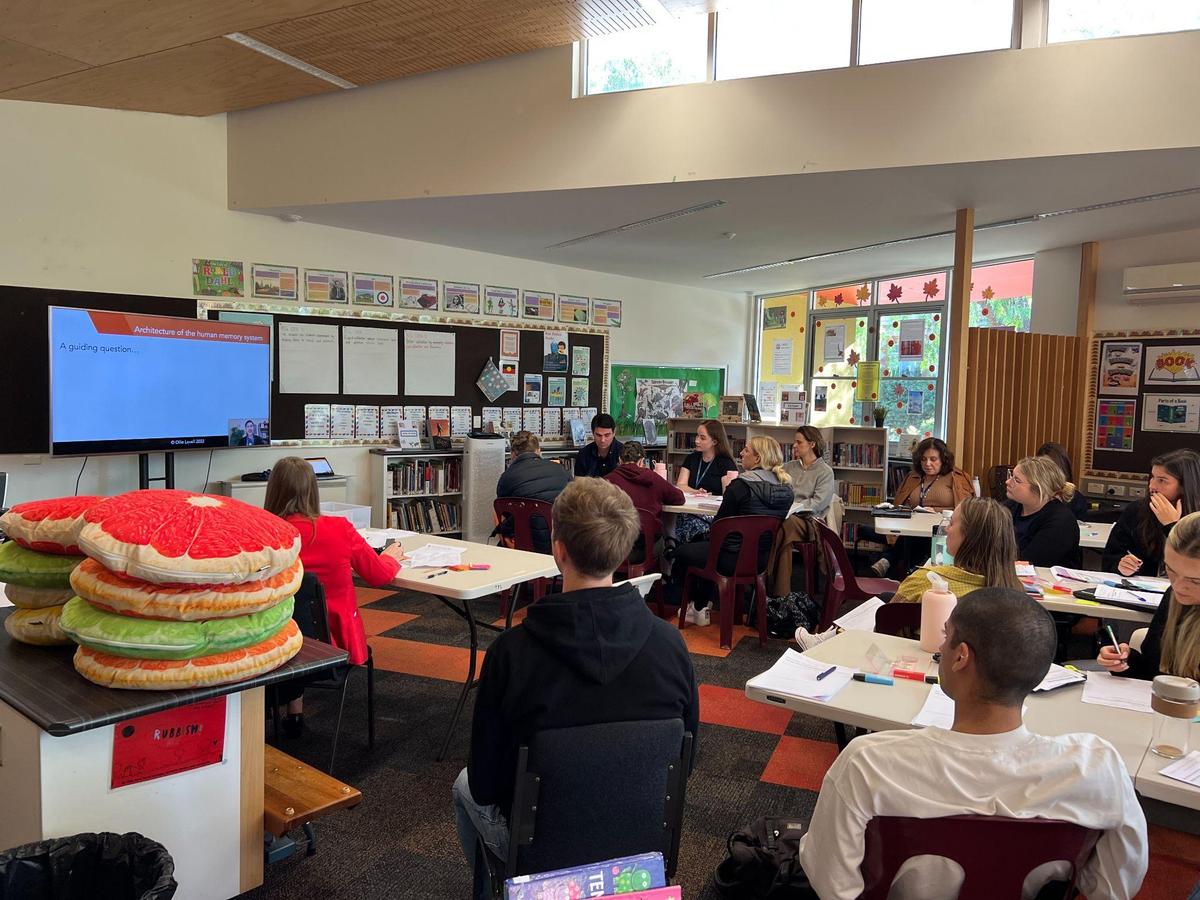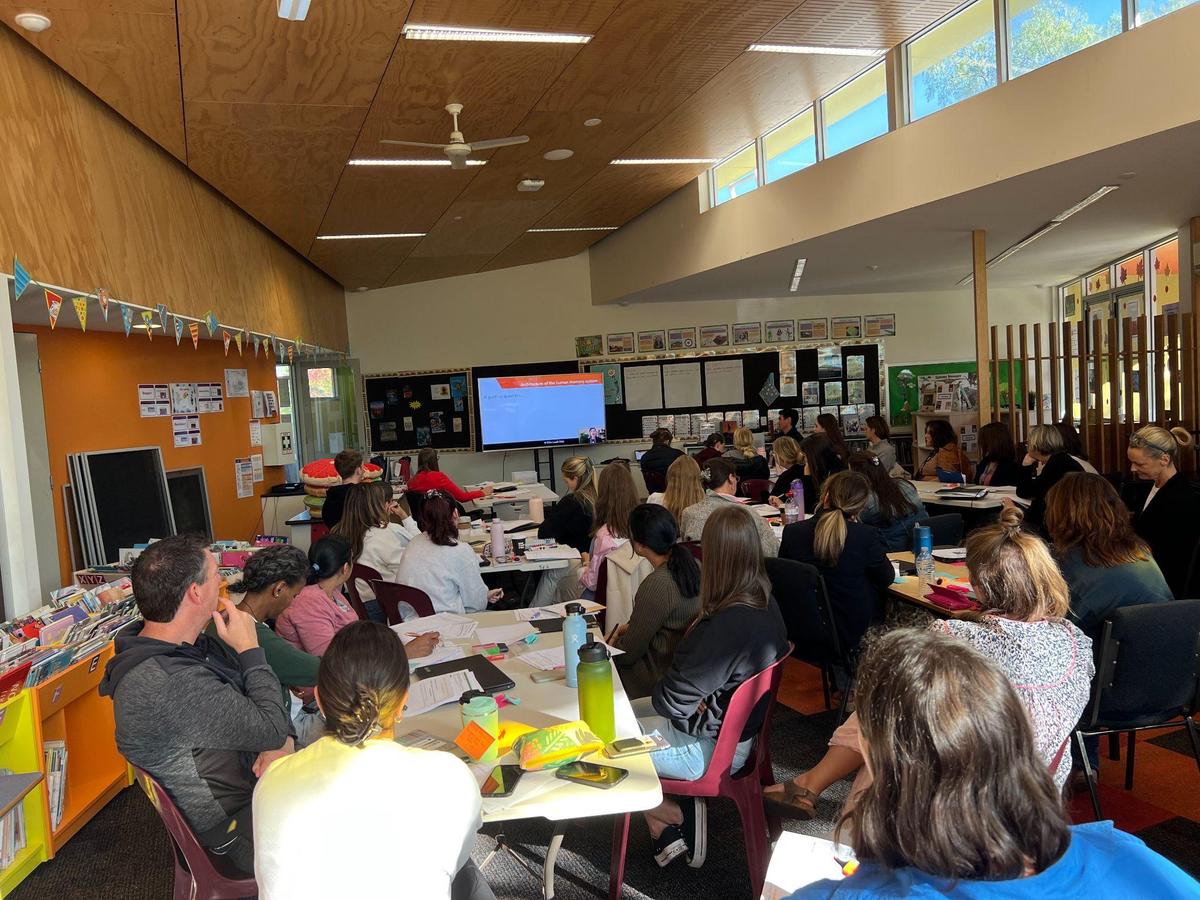Assistant Principal's Message

Curriculum Day
On Monday 24 April, all staff engaged in a full day of professional learning aimed at further developing their understanding of the cognitive science of learning. We are fortunate to have developed a partnership with Ollie Lovell who is a practising teacher, author and blogger and is leading work on ‘cognitive load theory’. Ollie delivered a practical and thought provoking learning session on how to reduce the cognitive load for students to increase their ability to move new learning into their long term memory for retention and later retrieval.
Cognitive load refers to the amount of mental effort required to complete a task or learn new information. For students, cognitive load can have a significant impact on their ability to learn effectively.
During the learning session, teachers developed an understanding of 2 types of cognitive load:
- Intrinsic cognitive load: This is the mental effort required to understand new information or concepts. It is determined by the complexity of the material being learned and the student's prior knowledge and cognitive abilities.
- Extraneous cognitive load: This is the mental effort required to process information that is not directly relevant to the task at hand, such as distractions or confusing instructions.
To optimise learning, it is important for teachers to manage cognitive load by presenting information in a way that is clear, concise, and relevant, reducing extraneous cognitive load, and providing opportunities for students to actively engage with the material.
Managing cognitive load can lead to better learning outcomes for students in several ways:
- Improved understanding and retention of information: By reducing extraneous cognitive load, students can focus their mental effort on processing and integrating new information, leading to better understanding and retention.
- Increased engagement and motivation: When material is presented in a clear and relevant way, students are more likely to be engaged and motivated to learn, leading to better learning outcomes.
- Enhanced problem-solving and critical thinking skills: By reducing extraneous cognitive load students have the mental capacity to apply new information to solve problems and think critically about the material.
- Reduced stress and frustration: When cognitive load is managed effectively, students are less likely to experience stress and frustration, which can interfere with learning.
Overall, managing cognitive load can help students learn more effectively and efficiently, leading to better learning outcomes and a more positive learning experience.
Suada Dzaferovic
Assistant Principal
Welcome Back
Welcome back to Term 2. We hope you all had an enjoyable and restful break.
At Toorak Primary we are committed to implementing Respectful Relationships to further improve the wellbeing of our students. Below is an outline explaining why we teach and build Respectful Relationships at school and within classrooms and what topics will be covered throughout the year.
Why do we teach Respectful Relationships?
Everyone in our community deserves to be respected, valued and treated equally. We know that attitudes and behaviours can be achieved when positive attitudes, behaviours and equality are embedded into the education system. In recent years, Respectful Relationships Education became a core component of the Victorian Curriculum.
Respectful Relationships is about embedding a culture of respect and equality across our entire community; from our classrooms to staff rooms, sporting fields, fetes and social events. This approach leads to positive impacts on a students’ academic success, their mental health and relationships between teachers and students.
Schools are places where students learn how to interact with others and work together in a collaborative and respectful way.
Building Respectful Relationships at Toorak Primary School
At Toorak Primary School, our Wellbeing Programme is based on the Resilience, Rights and Respectful Relationships Classroom Program.
Toorak Primary students will be developing their personal, social and emotional skills, including: self-awareness, self-management, social awareness and social management through a series of learning experiences. Students will also be developing respectful relationships, with a focus on Gender and Identity and Positive Gender Relations.
In the Classroom
Respectful Relationships acknowledges that children of any age have challenges to overcome, teaching social and emotional skills appropriate to their age and level of maturity. The program teaches students how to build healthy relationships, resilience and confidence. The learning resources are age appropriate and adapted to suit the needs of our students.
The topics that will be covered within the Respectful Relationships program include:
- Emotional Literacy
- Personal Strengths
- Positive Coping
- Problem Solving
- Stress Management
- Help Seeking
- Gender and Identity
- Positive Gender Relations
The Resilience and Rights component of the teaching and learning materials (Topic 1-6) helps students develop the essential social and emotional skills, knowledge and understanding they need before addressing the concepts in Topics 7 and 8, which is the Respectful Relationships part of the program.
Together, we can lead the way in saying yes to respect and equality and creating genuine and longstanding change.



